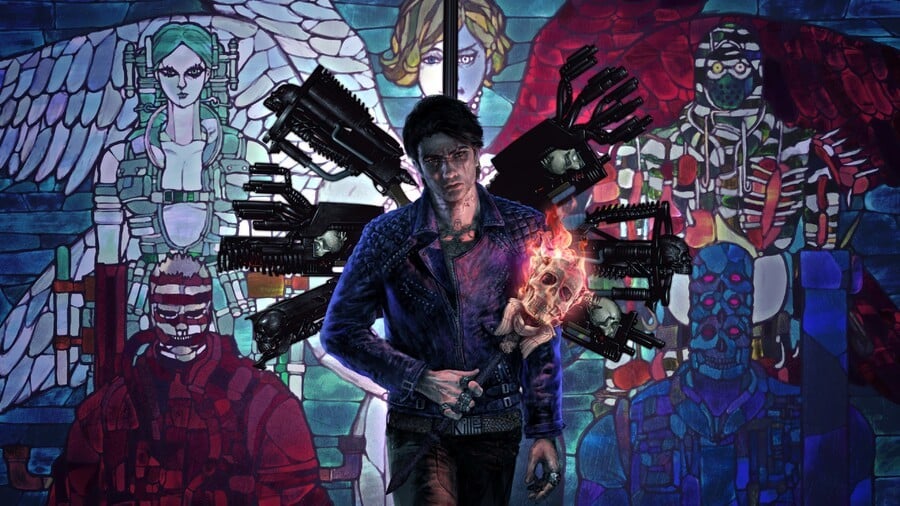
Japanese video game industry legends Goichi "Suda 51" Suda and Shinji Mikami (of No More Heroes and Resident Evil fame, respectively) aren't huge fans of critical aggregator Metacritic. The storied developers think that the industry practice has a detrimental effect on creativity, which is another reason why video games have become increasingly safe in recent years.
The twosome sat down with GamesIndustry.biz to discuss the current state of games and why titles with a unique and more experimental nature are becoming lost in the churn, and Suda said: "Everybody pays too much attention to and cares too much about Metacritic scores. It's gotten to the point where there's almost a set formula – if you want to get a high Metacritic score, this is how you make the game. If you've got a game that doesn't fit into that formula, that marketability scope, it loses points on Metacritic."
If you didn't know, Metacritic is a popular review aggregate site that began all the way back in 1999, being acquired by Wiki fan-site company Fandom in 2022. Fandom is a for-profit company created by Wikipedia co-founder Jimmy Wales in 2004.
To shed some further light on how it all works, rated outlets such as Push Square don't submit their reviews to Metacritic; instead, they are scraped from the internet once an embargo lifts and assigned extra weighting "because of their stature" in the industry. Metacritic flat-out refuses to reveal what additional weighting these special, chosen publications receive. Some studios and publishers only pay out bonuses to staff on achieving a certain Metacritic score, which is also obviously not great. Alternate aggregator OpenCritic purports to have fewer downsides than Metacritic but lacks the same brand recognition and broad acceptance to really catch on.
The Grasshopper Manufacture studio head says that his studio has fallen foul of this, but they try not to focus on it: "I don't care too much about the Metacritic numbers. I'm not really conscious of them. What's important to us is putting the games that we want to put out and having people play the games we want them to be able to play. Sometimes, a media outlet has given us zero. That makes me feel shitty - why go that far and give us zero?"
Meanwhile, Mikami, whose directed games are far more mainstream and have found quite a bit of critical success, has felt the pinch when working on games that are more off the beaten path, like Shadows Of The Damned or Godhand. He says there are plenty of great games being overlooked because of the marketing potential of big blockbusters, which inherently appeal to the masses: "[It's] because of all the big budget games that are out there and all the power that's put into the marketing for them. The kind of games that get the most marketing support are the ones that need to appeal to as broad an audience as possible. More unique games don't really have the same marketability."